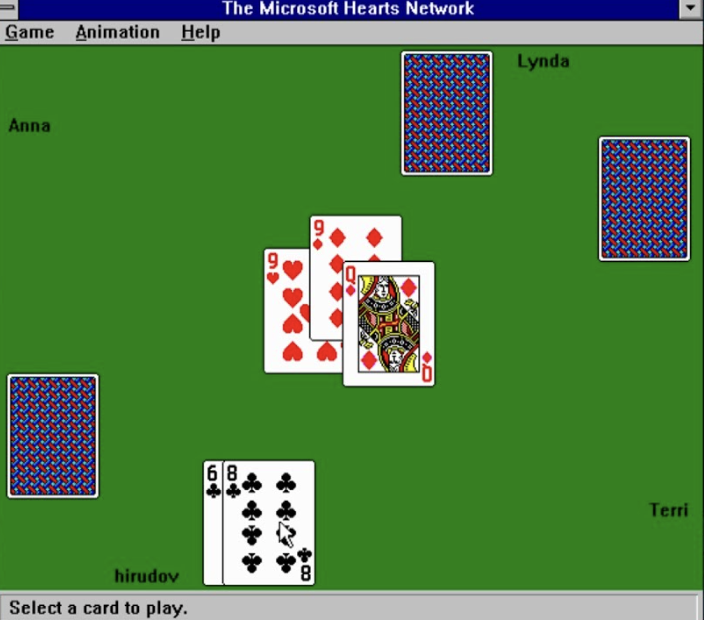7 Amazing Facts You Didn't Know About Hearts
By Neal Taparia - 7/19/2023
The card game of Hearts is more than just a game; it's a fascinating blend of strategy, probability, and social interaction. Known for its simple rules and addictive nature, Hearts has garnered a loyal following around the world. Whether you're playing with friends, competing in a tournament, or enjoying a digital version, Hearts offers endless hours of fun and challenges. To commemorate this great game, here are some facts you probably didn’t know.
Origin of Hearts
Hearts is believed to have originated from an earlier game called Reversis, which was popular in Spain during the 1600s. Reversis involved players attempting to avoid capturing certain cards, much like the concept of Hearts. The game eventually evolved and gained popularity in England before making its way to America, where it received further refinements and became the Hearts we know today.
That being said, during the American Civil War, Hearts gained popularity among soldiers on both sides of the conflict. It is said that soldiers would pass the time in camp by playing Hearts, providing them with a distraction from the harsh realities of war. The game became so intertwined with the era that Hearts is often referred to as the "Black Maria" in some regions, a nickname believed to have originated from the name of a Union prison ship during the war.

From its Spanish roots in the game Reversis, to being a favored pastime among soldiers during the American Civil War, Hearts evolved into the popular card game we know and love today.
Variations of Hearts

While the classic version of Hearts is the most widely known, numerous variations exist. Some popular variants include rule-bending Omnibus Hearts, historically-infused Black Maria, and points-focused Spot Hearts, each with its own unique set of rules and gameplay elements. Exploring these variations can breathe new life into the game, allowing players to enjoy fresh challenges and strategies.Whether you're a seasoned Hearts player or a novice, exploring these variations can lead to an exciting rediscovery of the game, fostering a deeper understanding and appreciation of its multifaceted nature.
Hearts as a Computer Rival

Hearts gained significant popularity as one of the first card games to be included in the Microsoft Windows operating system (it was called Microsoft Hearts Network back then). The computer-controlled opponents, often referred to as "AI players," provided a challenging and competitive experience for solo players. This digital adaptation helped introduce Hearts to a broader audience and contributed to its enduring appeal.
Hearts in Pop Culture
Hearts have made appearances in various forms of popular culture. In the classic novel "Alice's Adventures in Wonderland" by Lewis Carroll, the Queen of Hearts reigns as a tyrannical and hot-tempered character. Hearts has also been featured in films, such as "The Cincinnati Kid" and "Rounders," where it serves as a backdrop for intense gambling scenes. Its inclusion in popular media further solidifies Hearts' place as an iconic card game.

“From literature to films, the representation of Hearts in popular culture underscores its timeless appeal and iconic status as a universal card game.”
Hearts as a Mind Sport
In recent years, there has been a growing recognition of Hearts as a mind sport. Mind sports are competitive activities that require mental skills and strategic thinking. Hearts tournaments are now organized as part of mind sports events, alongside other intellectually demanding games such as chess, bridge, and poker. This acknowledgment underscores the complexity and depth of strategy involved in playing Hearts at a competitive level.
Hearts as a Solitaire Game

Hearts is commonly known as a multiplayer card game, and the most popular versions are Hearts with 2 players and Hearts with 3 players. However, it can also be played as a solitaire game. In this variant, the player aims to achieve the lowest score possible by strategizing and avoiding penalty cards. Solitaire Hearts provides a unique solo gaming experience, allowing players to sharpen their skills and challenge themselves without the need for opponents.
Hearts and Psychological Research
Hearts have served as a subject of study in the field of psychology. Researchers have used the game to explore various aspects of decision-making, risk assessment, and social interaction. Hearts provide an intriguing context for studying human behavior and cognitive processes, shedding light on topics such as cooperation, competition, and the impact of emotions on decision-making.
Conclusion
Playing Hearts continues to capture the hearts and minds of players across the globe. From its solitaire variant to its presence in online communities and educational settings, Hearts transcends its origins as a casual card game and offers a rich and diverse experience. Whether you're exploring the game's psychological aspects or testing your skills in competitive play, Hearts remains an engaging and intellectually stimulating game that continues to stand the test of time.